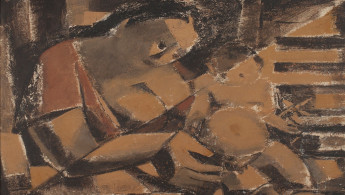Mona el-Shimi: Another kind of memoir
The memoir is a single narrative, which Shimi addresses to her son Ziyad, who passed away after being diagnosed with cancer, a tumour the size of a grape. The author dedicates the novel to him with the words: "Ziyad... I will tell you all about the life to which you were entitled."
Similar to Isabel Allende's novel Paula, in which the Chilean author tells her life story to her daughter who is in a coma, Shimi narrates to Ziyad the twists and turns of her own life. The novel begins with her strictly traditional upbringing in Upper Egypt, before moving on to her experiences through the various stages of her life. However it seems that, unlike Allende, the Egyptian novelist is aware of the limits of literary expression in the Arab world. She says "Arab readers will forgive the works of Allende's pen, but female Arab authors simply aren't afforded the same generosity, under any circumstances."
| Arab readers will forgive the works of Allende's pen, but female Arab authors simply aren't afforded the same generosity, under any circumstances. |
Shimi portrays her apprehensive young self as a "southern girl" who had a huge shock when she moved to the big city to study at the Faculty of Archaeology in Cairo University. She writes about life as a student, surrounded by custom and traditions and, of course, The Girls of the Seaside. The novelist tells of her first love affair, with an assistant professor who left her to go and continue his studies in Germany, her traditional Egyptian marriage to a man who was twenty years her senior. Shimi conveys how writing stories became her only refuge from the monotony of her life, intertwining the story of her son Ziyad's pain and suffering throughout his treatment with her own personal anguish, and reflecting on her relationship with the outside world: men, the city, the internet and the cultural milieu.
The Size of a Grape is also an attempt to approach many of the problems endured by Egypt across four decades from a very personal perspective, through the changes which were forced on her family. At the same time, she separates her private life and her public life, pushing the events of the January 25th revolution to the margins of her personal agony. There are, however, moments in the novel when we glimpse these her life being affected by much bigger events, such as when she is on her way to the hospital to visit her dying son while Tahrir Square is ablaze with revolution.
In times like these, Shimi tells her son: "This is the Cairo that you would love to see. You should take a look at what's going on from the window. Wake up, Ziyad! But I'm not excited by the graffiti or the slogans appearing on walls and signs: The Prosecutor General falls; No to the military court for civilians; Time to put the old regime on trial. You're all I care about at the moment, Ziyad. Soon we'll pass by Tahrir Square. Just a week ago I was wishing that I could be there. But I won't look at it; I won't pay any notice to all the little tents protesters are setting up there. What's taking place out there is no longer where my concern lies; now it's just on the sidelines of everything else that's happening."
This is an edited translation from our Arabic edition.



